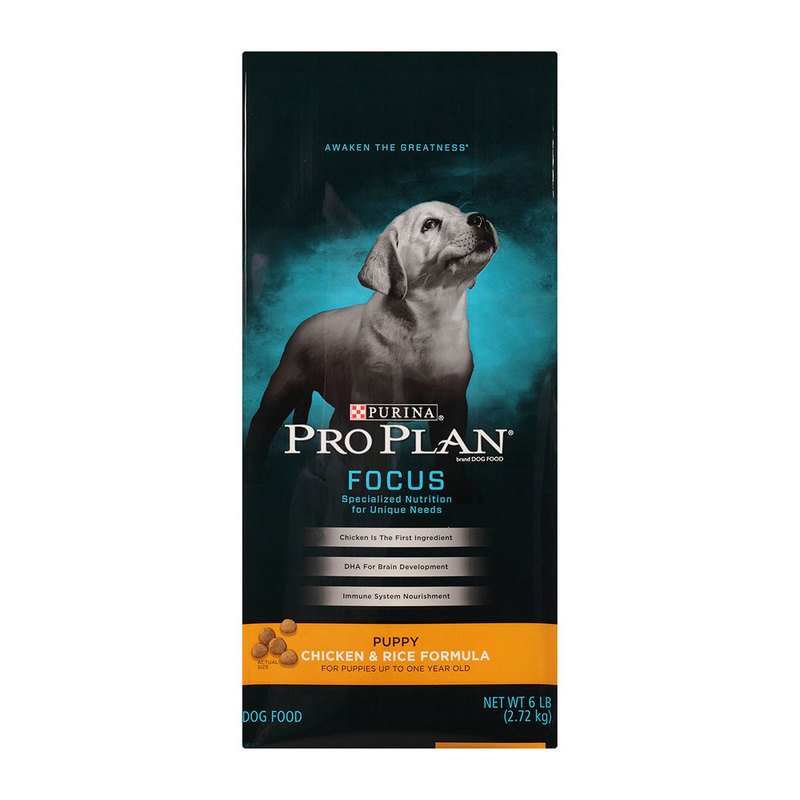
You have come to the right spot if your goal is to adopt a small dog breed. You can read on to learn more about French Bulldogs. Bichon Frises, and Cocker Spaniels. Each breed requires a different amount of exercise and grooming.
Cocker Spaniels
Cocker Spaniels are small-breed dogs that can make great additions to your family. However you must be aware of potential problems. They shed a lot and are not hypoallergenic. This could pose a problem if you have allergies.
There are many diseases that could affect the eyes of your Cocker. Blindness is possible from progressive retinal degeneration, a condition that causes the cells to become more damaged. Glaucoma is another disease that could affect Cockers. This is when pressure builds up in the eyeball. There are many treatments available for this condition. If your dog displays any of these symptoms, your vet will recommend the best treatment.
Mini American Shepherds
Mini American Shepherds can be small dogs that have a thick double coat. These dogs shed a lot because of their double coat. They need to be brushed daily to keep their coats looking clean. You should also bathe them about once a month. You should also give them regular ear exams.

American Mini Shepherds are well-known for their intelligence, athleticism and good nature. They have medium-length, merle-patterned hair and a similar appearance to Australian shepherds. Their double-coated coats have a dense undercoat, and they have short hair on the head. They also have moderate feathering on their legs.
Bichon Frise
Bichon Frises are a small breed that can adapt to a variety of environments. This small breed should be treated as an important member of the household. Bichon Frises are not suitable for families that have children. They are notoriously sensitive to noise, and they will not be happy in noisy environments.
Bichon Frises are highly social and intelligent dogs. It is very affectionate and thrives with lots of attention. These small dogs are often suited for apartment living or novice dog owners. They need exercise and playfulness, and are not comfortable being left alone for prolonged periods of time. They are affectionate, gentle and intelligent and respond well to human attention.
French Bulldog
French Bulldog is a small breed that was developed in France. They are considered a toy dog and companion dog. The French Bulldog was born in the middle of the 19th century. It is a crossbreed between Toy Bulldogs from England and Parisian rats.
The French Bulldog is a short-coated dog that sheds quite frequently. They require minimal grooming and should only be bathed once every four to six months. The French Bulldog breed is usually between 11 and 13 pounds and has a life expectancy of nine to eleven.
Chihuahua

Chihuahua, a small breed of dog, is from Mexico. The Chihuahua breed is named after the Mexican state. They are frequently kept as companions or for show.
Chihuahuas can be affectionate and lively, and they love to spend time with their owners. They are playful, bold, proud, adventurous, and love snuggling. Without proper leadership, they can be stubborn or strong-willed.
Beagle
The Beagle is a great choice for indoor small dogs, because it is very low-maintenance. Even though this small breed sheds a lot, it does not require a bath or frequent trips to the groomer. It is necessary to brush your dog's fur at least once per week. Your dog will need to have its ears and nails trimmed regularly. Most beagles need only to be brushed and groomed once a year. However, some dogs might require more frequent care.
The Beagle's unique body structure can result in some health problems, including a tendency to gain weight. Hip dysplasia is a condition in which the socket and joint do not grow at the right rate.
FAQ
Should I spay/neuter/neuter a dog?
Yes! It is important to spay and neuter your dog.
It helps reduce unwanted puppies and reduces the risk for certain diseases.
There is, for instance, a greater chance of breast cancer in female dogs that in male dogs.
Males are at greater risk for testicular cancer than their female counterparts.
Spaying and neutering your pet also prevents her from having babies.
What's the best pet?
The best pet is the one you love. There is no correct answer. Everyone has their own opinion as to which pet is the best.
Some believe cats are more intelligent than dogs. Some people believe that dogs are more loving and loyal than cats. Still, others argue that birds are the best pet.
No matter which type of pet you decide on, you have to choose what type of personality you want.
If you are friendly and outgoing, a dog might be the right choice. If you're shy and reserved, a cat would suit your needs best.
Also, take into account the size your house or apartment. A smaller apartment means you'll need a less large pet. A large house will require more space.
Remember, pets need lots and lots of attention. They should be fed on a regular basis. They must be taken on daily walks. They must be brushed regularly.
These are the things that will help you choose the right pet for you.
Which size are cats and dogs easier to train?
Both. It depends on how they are trained.
You can make them learn faster if they get treats for doing the right thing. But if you ignore them when they don't listen, they'll start ignoring you too.
There is no right or bad answer. You have to decide what the best way is to teach your cat/dog.
What age should a child have a pet?
Children under 5 years old should not own pets. Children under five years old should not own cats and dogs.
Children who own pets often get bitten by them. This is especially true of small dogs.
Also, some breeds of dogs (such as pit bulls) can be extremely aggressive towards other animals.
A dog may appear friendly but it will still attack other animals.
If you decide to get a dog, make sure it is properly trained. Also, supervise your child whenever the dog is with her.
How to feed a pet.
Dogs and cats consume four times a daily amount of food. Breakfast is usually dry kibble. Lunch usually consists of some type of meat such as chicken or beef. Dinner is typically a variety of vegetables such as broccoli and peas.
Cats have different dietary requirements. Canadian foods should be included in their diet. These include tuna, salmon, sardines, and chicken.
It is possible for your pet to enjoy fruits and veggies. These should not be allowed to your pet too often. Cats tend to get sick if they overeat.
It is not a good idea for your pet to drink water directly from the faucet. Instead, let him drink out of a bowl.
Your pet should get enough exercise. Exercise will help him lose weight. It also keeps him healthy.
After you have given your pet food, clean up the dishes. This will help prevent your pet ingesting bacteria.
Make sure to brush your pet every day. Brushing your pet regularly can help remove dead skin cells that could lead to infection.
Your pet should be brushed at least twice per week. Use a soft bristle brush. A wire brush is not recommended. It can cause irreparable damage to your pet’s teeth.
Always supervise your pet's eating habits. He should chew his food well. He might swallow pieces of bone if he doesn’t.
Avoid letting your pet go to the garbage cans. This could be dangerous for your pet's health.
Your pet should not be left alone in an enclosed space. This includes cars, boats, and hot tubs.
Three things you should think about before getting a cat.
These questions should be asked before you purchase a cat.
-
Is the cat suffering from any health problems?
-
Can the cat eat all of my food?
-
Is it because I am a lover of cats or do you just want a pet to play with?
What should you do if your dog bites someone else?
First, make sure the animal isn't rabid if you are attacked. If this is impossible, you can call for help. Do not try to resolve the situation on your own, as you may be seriously injured.
If the pet is not aggressive but bites, it should be taken to a veterinary hospital. Your vet will inspect the animal and recommend any further treatment.
In most cases, rabies shots are required. However, you should never administer these yourself. Only a qualified person should be able to do this.
Statistics
- A 5% affiliation discount may apply to individuals who belong to select military, law enforcement, and service animal training organizations that have a relationship with Nationwide. (usnews.com)
- Monthly costs are for a one-year-old female mixed-breed dog and an under one-year-old male domestic shorthair cat, respectively, in excellent health residing in Texas, with a $500 annual deductible, $5,000 annual benefit limit, and 90% reimbursement rate. (usnews.com)
- It's among a relatively few companies that provide policies with a full (100%) coverage option, meaning you are not responsible for any co-payment of bills. (money.com)
- Pet insurance helps pay for your pet's medical care, with many policies covering up to 90 percent of your vet bills. (money.com)
- For example, if your policy has a 90% reimbursement rate and you've already met your deductible, your insurer would pay you 90% of the amount you paid the vet, as long as you're still below the coverage limits of your policy. (usnews.com)
External Links
How To
How to choose the perfect name for your pet
The most important decision you will make when adopting an animal is choosing a name. Names should reflect who your pet is and their personality.
You need to think about how others may refer to you. Finally, think about how you'd like to be referred. What do you prefer, for example, "dog" or pet?
Here are some tips and tricks to help you get going.
-
Choose a name that is appropriate for your dog's breed. Look up the names of the breeds if you know the breed (e.g. Labradoodle). Ask someone who is familiar with dogs to recommend a name that fits the breed.
-
Take into account the meaning behind the name. Some breeds have names that are based on people or places. Others are nicknames. A Labrador Retriever, for example, was given the name "Rover" as he was always running around.
-
Now think about what you'd like to call yourself. Do you prefer to be called "dog?" or "pet?" Do you prefer to call your dog "Puppy", or "Buddy?"
-
Don't forget to include the owner's first name. It's sensible to give your dog an owner's name. But, don't limit yourself by limiting your family's names. Your dog may grow up to be part of your family, too!
-
Many pets may have more than one name. A cat could have several names, depending on her location. At home, she could be called "Kitty Cat", but when visiting friends, "Molly". This is especially true if the cat lives outside. Cats often choose to adopt their name according to their surroundings.
-
Be creative There is no rule that says you must follow a particular naming convention. Make sure you choose something memorable and unique.
-
Be sure to check that your chosen name does not already belong in the hands of another person or organization. So you don't accidentally steal someone's identity.
-
Last but not least, don't forget to remember that choosing a name can be a complicated process. Sometimes, it takes time for you to choose the right name. Keep trying until you find the right name!